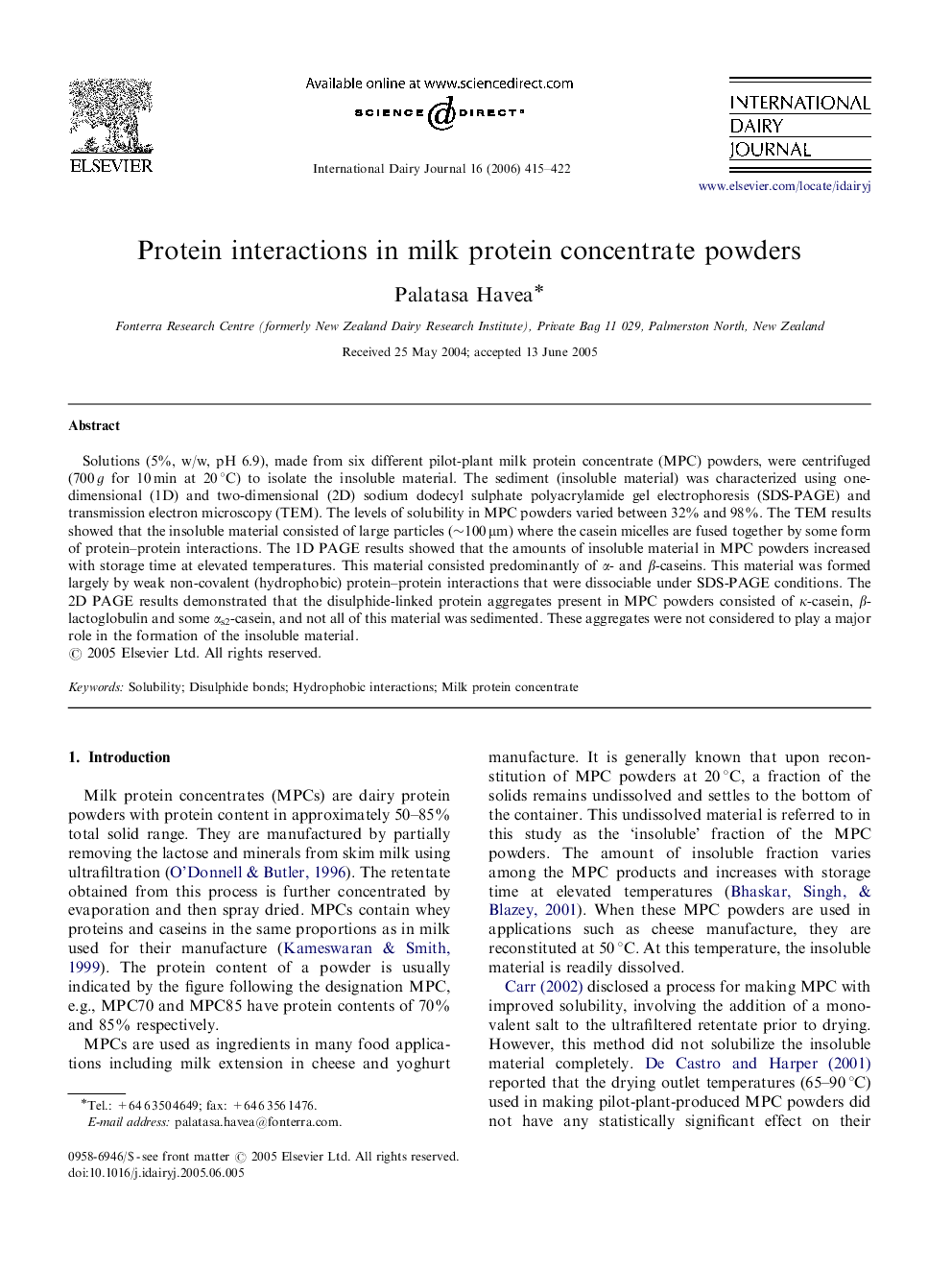| کد مقاله | کد نشریه | سال انتشار | مقاله انگلیسی | نسخه تمام متن |
|---|---|---|---|---|
| 2435524 | 1107079 | 2006 | 8 صفحه PDF | دانلود رایگان |

Solutions (5%, w/w, pH 6.9), made from six different pilot-plant milk protein concentrate (MPC) powders, were centrifuged (700 g for 10 min at 20 °C) to isolate the insoluble material. The sediment (insoluble material) was characterized using one-dimensional (1D) and two-dimensional (2D) sodium dodecyl sulphate polyacrylamide gel electrophoresis (SDS-PAGE) and transmission electron microscopy (TEM). The levels of solubility in MPC powders varied between 32% and 98%. The TEM results showed that the insoluble material consisted of large particles (∼100 μm) where the casein micelles are fused together by some form of protein–protein interactions. The 1D PAGE results showed that the amounts of insoluble material in MPC powders increased with storage time at elevated temperatures. This material consisted predominantly of α- and β-caseins. This material was formed largely by weak non-covalent (hydrophobic) protein–protein interactions that were dissociable under SDS-PAGE conditions. The 2D PAGE results demonstrated that the disulphide-linked protein aggregates present in MPC powders consisted of κ-casein, β-lactoglobulin and some αs2-casein, and not all of this material was sedimented. These aggregates were not considered to play a major role in the formation of the insoluble material.
Journal: International Dairy Journal - Volume 16, Issue 5, May 2006, Pages 415–422